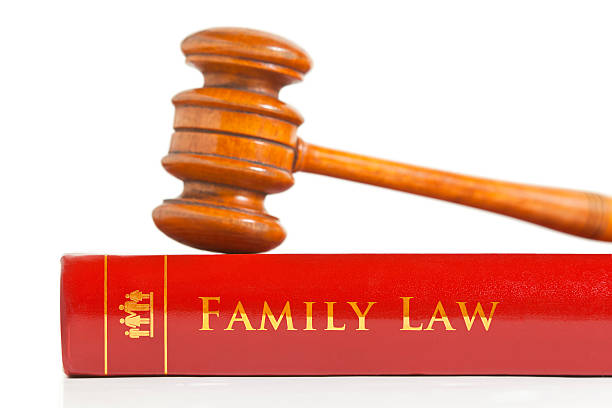This article will discuss the institution of proceedings and procedures under the Family Law Act 1975, Part VII, Division 12. The Family Law Act contains laws and regulations that state how courts handle family law matters. This includes terms and conditions for both parties and courts alike. Section 69A provides an overview of the Division 12. It states that the Division outlines family law matters related to:
- Jurisdiction of courts
- Presumptions of parentage
- Parentage evidence
- Places and people where all of the mentioned family law matters extend and apply
Knowing how the institution of proceedings and procedures work in legal proceedings is essential. Hence, this article can help you learn more about its relevant sections.
Section 69B: Certain Proceedings Instituted
After the commencement of Section 69B of the Act, parties must only bring child-related matters under this Part. But, what does this mean? Basically, parties must establish legal action for the institution of proceedings and procedures regarding family law matters mentioned in Section 69A under this Part only. However, this does not apply to the institution of proceedings and procedures under the:
Section 69C: Who May Institute Proceedings
According to Section 69C, the following people may establish legal proceedings under this part:
- Both or either one of a child’s parents
- The child
- A grandparent of a child
- Any other person concerned with the care, welfare, or development of the child
Sections 65C, 66F, 67F, 67K, and 67T specifically address who may bring certain types of proceedings involving children. Here are the kind of orders made in the mentioned sections:
Sections 65C: Parenting Order
Parenting orders are basically for divorcing or separating couples who want parenting arrangements for their children. Courts may grant a parenting order either through the parent’s agreement (consent orders) or through the institution of proceedings and procedures in court. The following people may apply for a parenting order:
- Both or either one of a child’s parents
- The child
- A grandparent of a child
- Any other person concerned with the care, welfare, or development of the child

Sections 66F: Child Maintenance Order
Child maintenance is similar to child support but for children who are over 18. Courts will conduct the institution of proceedings and procedures when an adult child needs financial support if they:
- Need financial support in order to start and finish their college degree or finish other courses and training
- Have mental and physical disabilities
Here are the following people that may apply for a child maintenance order:
- Both or either one of a child’s parents
- The child
- A grandparent of a child
- Any other person concerned with the care, welfare, or development of the child
Section 67F: Childbirth Maintenance Order
Courts will draft a childbirth maintenance order if a mother needs financial aid for the delivery of her baby. The biological father is the one responsible for paying for childbirth maintenance whether he is married to the pregnant mother or not. Here are the following people that may apply for a childbirth maintenance order:
- The mother; or
- The mother’s legal representative
Section 67K: Location Order
Courts may draft a location order in order to find a child who was illegally relocated or abducted. These instances may happen regardless of separation or divorce and this goes against the child’s best interests. One of the primary considerations of the child’s best interests is the benefit to have a meaningful relationship with each parent and with other significant people in their lives. A person is eligible to apply for a location order if they:
- Are living with or communicating with the child under a parenting order
- Have parental responsibility over the child under a parenting order
- Are a grandparent of the child
- A person who is concerned with the care, welfare, or development of the child
Section 67T: Recovery Order
Lastly, courts will draft a recovery order once a child is located during the institution of proceedings and procedures regarding the illegal relocation of a child and child abduction. The parent who illegally relocated or abducted a child must present themselves in court for legal proceedings to commence. A person is eligible to apply for a recovery order if they:
- Are living with or communicating with the child under a parenting order
- Have parental responsibility over the child under a parenting order
- Are a grandparent of the child
- A person who is concerned with the care, welfare, or development of the child
Section 69D: Authorities or People Who May Institute Maintenance Proceedings
Here are the authorised people who may conduct the institution of proceedings and procedures regarding child maintenance:
- A specified authority of the commonwealth of a state or territory
- A person holding or acting in a specified office established under a law of the Commonwealth of a state or territory
Section 69E: Presence of a Child or Parent in Australia During Proceedings
According to Section 69E, a child or a parent must be present in Australia during child-related proceedings. Courts will only start with proceedings if:
- The child is present in Australia on the relevant day. The relevant day is the day the application is made or the day the application instituting the proceedings is made.
- The child is an Australian citizen or is an Australian resident on the relevant day.
- A parent of the child is an Australian citizen or is an Australian resident on the relevant day
- A party involved in the proceedings is an Australian citizen or is an Australian resident on the relevant day
- If the proceedings would be in accordance with a treaty or arrangement in force between Australia and an overseas jurisdiction.
Section 69F: Applicant May Be In Contempt
Contempt of court or ‘contempt’ is the disobedience of a court order. But, what if an applicant is in contempt and he/she is involved in child maintenance proceedings? Will the court still conduct the institution of proceedings and procedures regarding child maintenance? Yes. According to Section 69F, courts will still proceed with child maintenance even if the applicant failed to comply with a court order.
Applicant in Contempt Example
For instance, Roland is a father who has an adult child, Gary, who needs child maintenance because he was physically disabled after an accident. However, Roland refused to provide maintenance and fell into disagreement with his wife Bertha. Bertha then applied for a child maintenance order. After a court hearing, the court approved Bertha’s application.
Roland failed to comply with the order and divorced Bertha after. Months later, he married Ellen and discovered that her adult child, Nelson, is experiencing a major depressive disorder. This prompted Roland to apply for a child maintenance order. Courts will still approve his application regardless of his failure to comply with the previous child maintenance order for Gary.

Institution of Proceedings and Procedures With a Family Lawyer
Our family lawyers at JB Solicitors are experienced when dealing with family law matters like child-related proceedings. However, not all matters should end up in court and courts will naturally refer parties to alternative dispute resolution methods.
Our law firm offers mediation and arbitration services which are alternative dispute resolution methods that help parties reach legally binding agreements.
Contact us today for more information about the institution of proceedings and procedures.
